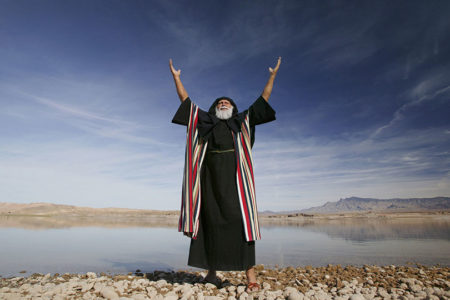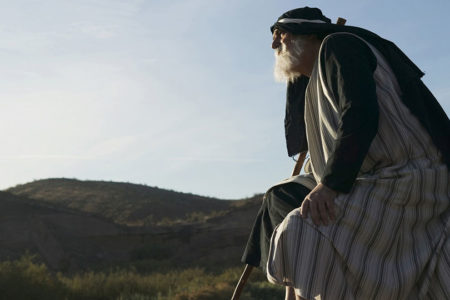From Bill Sutter’s Desk Mar/Apr 2012
Editor’s Note: It is with sadness that we acknowledge this is Bill Sutter’s final column as executive director of The Friends of Israel. His immense knowledge, wisdom, and insight made this column an important voice in Israel My Glory. We know God will bless Bill and continue to use him mightily during his much-deserved retirement.
The Friends of Israel is known for being a forward-looking ministry. Though not neglecting important lessons of the past and working to keep abreast of the impact of current events, this ministry is keenly focused on God’s plans for the future as set forth in His Word. We understand Bible prophecy is God’s road map, and we know the importance of keeping an eye on Israel and the Jewish people as a reflection of His plans and purposes.
So, within this framework, I offer several thoughts I trust will be meaningful to all of us in the days ahead.
First, let’s never be caught off guard by waves of unbelief that repackage themselves as new insights bolstered by an amazing degree of repetition over time. While offering up trendy theological expressions, they carry the same ages-old, destructive baggage of denial of God’s eternal truth. Going forward, we need to continue standing boldly with the Bible as God’s timeless Word that always meets mankind’s important needs.
Second, we must not surrender to the world’s terminology. People often use terms that are hostile to biblical truth. This problem occurs frequently in relationship to God’s ancient people—the Jewish people—and God’s land of promise—Israel.
One of our good friends in the Jewish community, Michael Perloff, chairman of the MERCAZ Israel Advocacy Committee, accurately documents how indiscriminate use of damaging terminology undermines Israel’s continuing efforts to live in peace with its neighbors. By diverting attention from Israel’s substantial contributions to the world, such terminology minimizes the Jewish state’s achievements, devalues Israel’s dramatic responses to worldwide humanitarian crises regardless of politics, and denies Israel’s democratic values and freedoms.
The term settlements is a good example. Arab communities developed in the midst of largely Jewish areas are not called settlements. Yet many people try to discredit legally established Jewish communities in the midst of predominantly Arab populations by using this faulty term that supports increasing demands to remove Jewish “settlements.” In reality, the demands are a call for the ethnic cleansing of Jewish people from their homes and communities.
West Bank is another such term that strikes at the heart of biblical truth. Prior to the Jordanian invasion in 1948 when the Arabs ethnically cleansed the area of Jewish people, the so-called West Bank was referred to by its rightful, biblical names of Judea and Samaria. We must affirm proper biblical terminology, not the world’s corrupted, agenda-driven designations.
Perhaps the most disingenuous term of all is East Jerusalem. It refers to neighborhoods on the east side of Israel’s capital as if they were a distinct municipal entity. The move is really a setup to give them over to a new Palestinian entity.
So-called East Jerusalem is Israel’s original capital and the location of the holiest Jewish and Christian sites. Jerusalem’s reunification as Israel’s capital in 1967 under Israeli sovereignty reversed a forced 19-year division of the city and ended the ethnic cleansing of Jewish people following the 1948 Jordanian invasion, occupation, and tearing apart of Jerusalem. The reunification is rightly viewed as a defeat of religious apartheid and the ethnic cleansing of Jews by Arabs.
For us to accommodate ourselves to the world’s damaging terminology not only strikes at the heart of God’s promises to Israel and the Jewish people but also denies proper biblical theology.
An important concluding thought: We should demonstrate to Jewish people everywhere that today’s Bible-believing Christians who readily embrace the term Christian Zionists, as we do, are not simply a friendlier version of what Jewish people have known Christians to be throughout much of history. We must demonstrate we are substantively different and totally separate from centuries of corrupt, man-centered theologies supported by the oppressive, ecclesiastical structures of “big religion.”
We do this best by demonstrating personal faith and godly living reflective of our study, belief, and application of the Bible as God’s Holy Word, which will stand forever.







